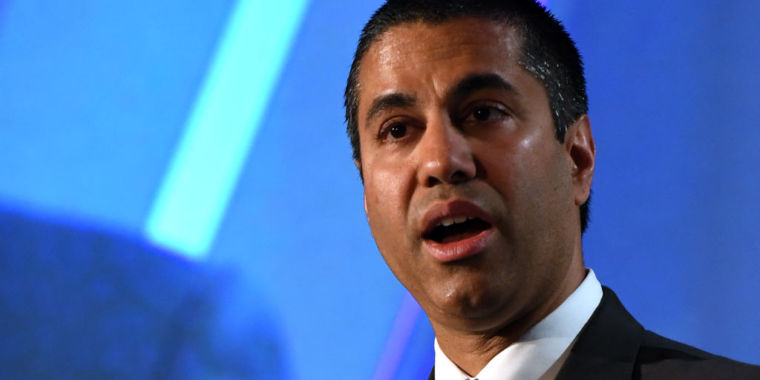Net Neutrality vote set for May 18th.
https://arstechnica.com/tech-policy/2017/04/ajit-pai-announces-plan-to-eliminate-title-ii-net-neutrality-rules/
https://arstechnica.com/tech-policy/2017/04/ajit-pai-announces-plan-to-eliminate-title-ii-net-neutrality-rules/
<sarcasm>I look forward to having to pay extra for the "online game" package so that they don't throttle my connection speeds when they notice I'm playing Overwatch.</sarcasm>
@Brian I could be off in my interpretation of how this will unfold, but I believe what will happen is your cost to the ISP will likely not be effected so much, who knows it might even go down. Your local ISPs are the ones who benefit the most from this, since they are the last mile to your house from the tier1 providers. They are the ones who can throttle content to the end user, until someone pads their coffers.
So in theory the tier1 provider (ie. Cogent) has to pay more to the last mile isp (ie. Charter) to prevent throttling, and the costs are ultimately passed on to the game service provider (ie. Sony/Xbox/etc) in a form of higher bandwidth costs for their game servers. In turn, the game service provider will pass that cost on to you, in order to access the service. In theory, this would effect all of the services you enjoy (Netflix, Sony, Hulu, etc.) and each one of them would be passing higher access costs over to you.
So instead of having 1 higher bill (your ISP), you'll have dozens of higher bills.
I could be misunderstanding this entirely, but that's how I see it unfolding.
So in theory the tier1 provider (ie. Cogent) has to pay more to the last mile isp (ie. Charter) to prevent throttling, and the costs are ultimately passed on to the game service provider (ie. Sony/Xbox/etc) in a form of higher bandwidth costs for their game servers. In turn, the game service provider will pass that cost on to you, in order to access the service. In theory, this would effect all of the services you enjoy (Netflix, Sony, Hulu, etc.) and each one of them would be passing higher access costs over to you.
So instead of having 1 higher bill (your ISP), you'll have dozens of higher bills.
I could be misunderstanding this entirely, but that's how I see it unfolding.
@lucas: Agreed, that's certainly one way it could unfold. I could even foresee some combination of the two approaches: one where there's extra cost from my ISP for certain types of traffic prioritization, and the other where certain services have to increase their rates to ensure top tier speeds.
There is one other scenario that could play out, which is the one that free-market evangelists would hope for: that this whole thing finally provides enough incentive to open up more competition in the ISP market. If my provider is doing things like selling the data on my browsing history and throttling my bandwidth based on types of services used, that it provides an opportunity for a new competitor to differentiate their service. After all, the real root of the fears regarding a lack of net-neutrality stems from the lack of consumer choice (at least in the U.S., I can't really speak for other countries). I'm not really optimistic about this scenario happening, but I'd love to be proven wrong.
There is one other scenario that could play out, which is the one that free-market evangelists would hope for: that this whole thing finally provides enough incentive to open up more competition in the ISP market. If my provider is doing things like selling the data on my browsing history and throttling my bandwidth based on types of services used, that it provides an opportunity for a new competitor to differentiate their service. After all, the real root of the fears regarding a lack of net-neutrality stems from the lack of consumer choice (at least in the U.S., I can't really speak for other countries). I'm not really optimistic about this scenario happening, but I'd love to be proven wrong.
Recommended Posts
Exchange Server Roadmap Update.
MS have moved the release date for the next version of Exchange Server to the second half of 2025.
It requires Server and CAL licenses and will be accessible only to customers with Software Assurance,
https://techcommunity.microsoft.com/t5/exchange-team-blog/exchange-server-roadmap-update/ba-p/3421389
MS have moved the release date for the next version of Exchange Server to the second half of 2025.
It requires Server and CAL licenses and will be accessible only to customers with Software Assurance,
https://techcommunity.microsoft.com/t5/exchange-team-blog/exchange-server-roadmap-update/ba-p/3421389
This is almost two years old and so far, no updates... am I missing something?
The detailed schedule for the virtual Access DevCon on April 18+19 is now available on the conference website.
https://www.donkarl.com/devcon
https://www.donkarl.com/devcon
Latest edition of Access News is available: https://www.youtube.com/watch?v=Taz6xjbgYDM
Keep in touch with Experts Exchange
Tech news and trends delivered to your inbox every month
Experts Exchange
The Original Tech Community
© 1996-2024 Experts Exchange, LLC. All rights reserved. Covered by US Patent.
© 1996-2024 Experts Exchange, LLC. All rights reserved. Covered by US Patent.




